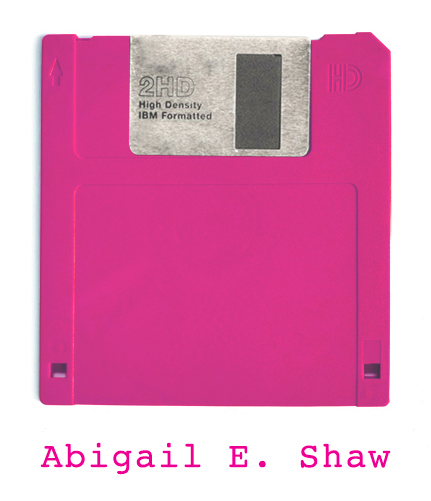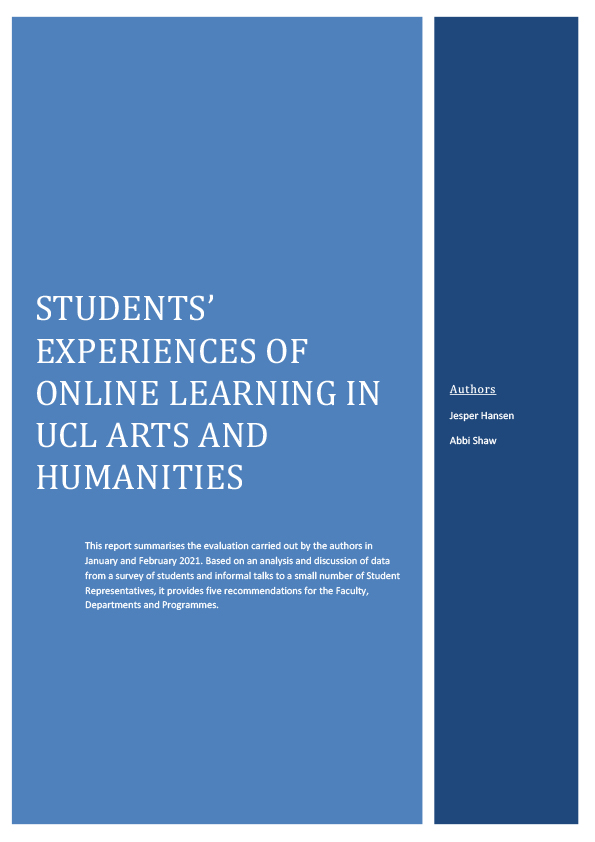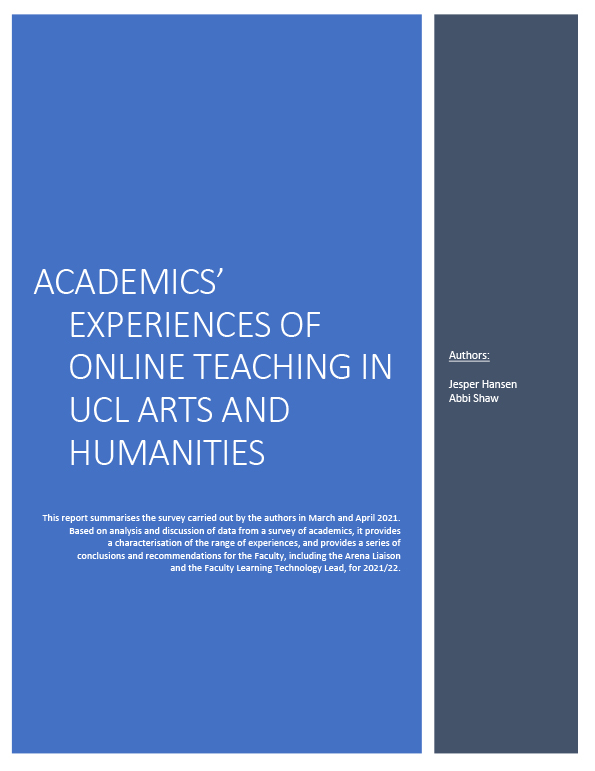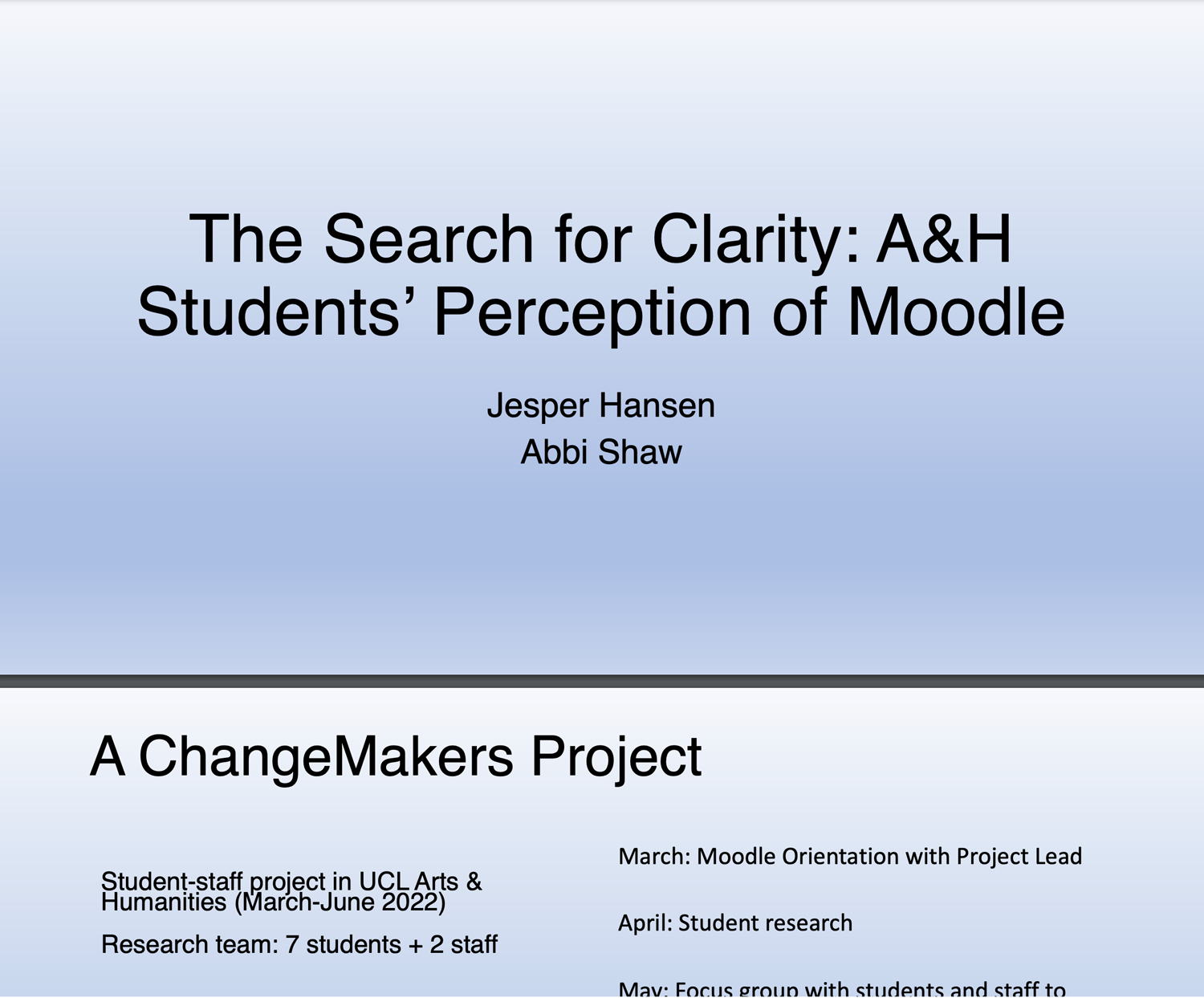
|
Specialist Option 1: Developing Iterative Faculty-Level Research
Summary:The iterative research projects I have conducted at Faculty-level have become a core part of my work, enabling tighter connections with other Faculty-level colleagues, a deeper understanding of the teaching, learning and assessment in disciplines across the Faculty, and a mechanism for both understanding and developing student and academic digital experience in Arts & Humanities. Further, these projects have enabled myself and colleagues to report Faculty experience and requirements into the central institution in a more formal, evaluative way than I might otherwise. We are better able to characterise the Faculty’s requirements, successes and best practice in such a way as to contribute not just to Faculty and institutional knowledge and practice, but to further feed into the wider digital education community. Description:My role, Faculty Learning Technology Lead, was a new one for the Faculty of Arts & Humanities. With the Faculty comprising 10 departments, plus one additional School that sat outside the Faculty structure, and this Faculty further residing as part of the “Joint Faculty”, a structure also including the Faculty of Social and Historical Studies, which had its own Faculty Learning Technology Lead, from my perception at the time of starting, there was little in the way of actual Faculty identity. Indeed, so unusual was my role that it took quite some time to factor in what type of meetings I might attend to get a full understanding of the Faculty, without either attending 11 separate departmental teaching meetings, or only having the too-broad Joint Faculty Teaching Committee. Evolving the structure of Faculty meetings and communications has been a continuous endeavour both for myself, and my other Faculty-level colleagues. I increasingly felt the need to generate some sort of work that I could point to which would begin to “sum up” the Faculty, its character and its requirements. As I began to meet the departments, to look at their modules, teaching, programmes, and practice, I began to find commonalities between all departments, and attitudes that had arisen as a result of this very particular setup. I also started to meet regularly with our Arena (Teaching and Learning centre) Teaching Fellow, who also worked at Faculty level, and had similarly struggled for a foothold. One characteristic of Arts & Humanities which differentiates it from other Faculties in my institution is its structure; departments and programmes tend either to be extremely linear, which is to say, non-modular, offering annual programmes of study which all students on a cohort take, or extraordinarily diverse, allowing students to take modules from across the Faculty, and in some cases across the Joint Faculty. In student rep meetings, it became apparent that students on a more interdisciplinary route were experiencing a certain level of disorientation in the digital aspects of their studies, simply because every department did things so very differently – and even within departments, there was little digital consistency. Meanwhile, at a central level, a discussion was taking shape around Faculty-level approaches to lecture capture, and the provision of recorded lectures. Here, too, I knew there was such inconsistency of practice that there were few conclusions to be drawn from simply illustrating the consistency. In conversation with my Arena colleague, I suggested we work with student reps to disseminate a survey about the A&H Student Online Experience, to see if, whilst the practice was incredibly varied, we might find more commonalities between our students. We ended up with over 100 student responses, and were able to ascertain surprisingly strong similarities of opinion, including a very strong desire for recorded lectures and video content from both interdisciplinary and single pathway students, and an evident frustration with the inconsistency of digital content and delivery across the Faculty. I worked on the statistics, developing a series of recommendations I would thread into my Faculty practice resulting from them, and my colleague wrote our methodology and findings. The resulting first Faculty-level report of Student Online Experience was extremely well-received, leading us to present at the Joint Faculty Teaching Committee, and to several interested departments. Evidence 1 in this section is the Student Online Experience report, and recommendations arising from it. At one such departmental meeting, an academic said, “Well, this is all well and good, but how come you haven’t asked us about our experiences?” I needed no further encouragement, and in a matter of weeks, I launched our Academic Online Experience survey, in Term 2 of 2020/21. This survey attracted responses from ¼ of actively teaching academics in our Faculty, and generated a rich repository of open text responses to a variety of questions. My colleague supported the thematic analysis of our resulting data, and I wrote up the summary, findings and report into the Academic Online Experience report. Evidence 2 is a link to this report. Again, this was very well-received, and its themes and findings underpinned a significant amount of my work leading into 2021/22, and indeed throughout that year. I presented across multiple internal committees and teaching groups, and, as outlined in my Advanced Area, these presentations resulted in a greater appreciation of the type of work I was doing, and the potential for impact not only for Faculty teaching and use of technology, but for Faculty influence into the wider institution. Whilst I have always had a positive relationship with the Heads of Department in my Faculty, I felt that seeing me in the context of more senior leadership, and hearing the positive responses to our Faculty research, encouraged Heads of Department to engage more closely with my work, and to take any recommendations seriously. Feeling that our Faculty-level approach had the benefit of being specific enough to feel relevant to A&H staff and students, whilst being just elevated enough to avoid some of the hazards of direct observation (the fear of indirect performance review, undue criticism, stubborn sense of secrecy), my colleague and I looked for a third iteration of this. This time we discussed things with our new Vice-Dean of Education, and mentioned that another Faculty was reviewing its use of Moodle. This was felt to be an area of specific interest for the forthcoming year, and so we decided to orientate our next iteration around this. The other Faculty mentioned were doing a very detailed Moodle audit, and I felt that this was too far a departure from our more anonymous, reflective approach that had been so successful in previous studies. We settled on student-to-student level research, for which we received Faculty-level funding, and recruited a group of students, as well as a project leader. We collectively came up with the title “How do A&H students experience the VLE?” I collaborated with the project lead, orientating them in current Faculty practice, giving a little background of VLE usage in higher education, and supporting their understanding of Moodle in terms that would be accurate, but hopefully clear to students (e.g. Activities, Resources, Quizzes). The lead then went on, with the rest of our researchers, to survey 100 students from across the Faculty. My colleague and I then held a focus group with these researchers, and the project lead wrote up a report on total findings, whilst I wrote a series of recommendations arising from this. Evidence 3 is a set of slides created to disseminate these research recommendations, along with an examination of the research impact, to internal teaching and learning central teams. As the research was coming together, we felt the project would be a good fit for the RAISE conference, held in September in Lincoln. The Faculty was keen to fund our travelling to present at this, and agreed to do so. The project lead, another student, myself and my colleague built a presentation of our findings, which we delivered successfully, prompting an excellent and engaging Q&A. However, this presentation was not recorded, and we felt that these recommendations deserved to be properly presented to our Faculty with the same student input. I felt that this year, with less focus on new technology, and no need for emergency platform training, it was finally time for me to design some tangible Faculty-level sessions, and came up with a series of three designed to empower module leads and teaching admin from across the department. In disseminating our recommendations, I felt it important it reach precisely those with the power to implement them, and thus we invited all module leads and teaching admin to a series of three sessions, each of which was informed by all the Faculty-level research done to date, each themed with a specific concern. These sessions were recorded, chunked, captioned and condensed, with appropriate resources, into posts which were then shared with all invited to ensure that they had the best chance of accessing the content. Evidence 4 includes links to all blog posts and recordings created to disseminate and support the implementation of findings, recommendations, and resulting Faculty good practice. These sessions will also be mentioned as part of the Advanced Level reflection on ALT values and principles. Thus far then, these three iterative Faculty-level research projects have enabled me to collaborate with teaching and learning colleagues, academics, and students. I hope in future to develop a line of research involving our professional service colleagues, including Teaching and Learning Administrators, to fully round out an understanding of the experience and impact of learning technologies across the Faculty. Reflection:This process remains ongoing, and I intend for iterative Faculty-level Research to continue to form a core part of my role, and for it to influence and shape the work I do both within, and outside, my Faculty. As each report has built on the previous, so we have been able to explore different methods, and practices both in gathering and interpreting our data. I would love to be able to explore Faculty digital identities and experiences using rich qualitative research methods, such as autoethnographies, or phenomenological analysis, for example, and feel that, the greater the evidence for the purpose of a variety of research and reporting at Faculty level on this area, the greater the potential for buy-in for new approaches. At RAISE 2022, as well as sharing the results of our work, I also reflected on the approach and process of engaging students as research partners, starting with the Student Online Experience survey, and continuing into our Student VLE Experience work. The specificity of the responses we have had, and the productive nature of the student research methodology strengthens my resolve to continue exploring these, and other ways to elevate the student voice in terms of their experience of digital education. I have committed to continuing to reflect on this process with my Faculty and colleagues, and am looking to publish an article, co-authored with my research partner, based on the model of student-staff partnership shortly. In writing up my Senior CMALT portfolio, I have found myself referring to my experiences, my findings, and the impact and influence of this research throughout. Whilst I do believe these reports have had significant impact both on my Faculty practices and processes, they have also created impact and inspiration within the central teams they’ve been shared with. As other FLTL colleagues have created their own Faculty-level reporting and projects, they’ve enabled us to reflect on the similarities and differences between us, and to better understand the nature and variety of support required. As I come to better understand the academics, students, and professional services staff and the implications of their setups, choices and experiences, I feel much better prepared to construct lessons learnt, and to parse and disseminate this information within institutional, national, and sector organisation. The Faculty Learning Technology Lead role is such a particular example of distributed leadership in higher education, that I have frequently found myself reflecting on the need to base my work on the facts of my Faculty at any point in time – such as I can observe them, at least. Elements of this portfolio, such as understanding my target learners, and having an ability to engage with legislation and policy, take on a particular character and importance when wielding the influence of specialist distributed leadership for a particular area. My institution is a research-intensive one, and since realising that I could conduct my work in a way that aligned with the inherent Faculty understanding of what grounded research and practice looks like, I have found it much easier to communicate priorities and possibilities. As each round of iterative research is complete, so the broader picture also comes into sharper focus. I hope that I will be able to find others from within the Faculty to participate, support and create complementary work, so that we can build a productive and continually evolving body of work which is reflective of our own challenges, attributes, and character. I hope that in doing so, I will continue to develop and enhance my own potential as a digital education researcher, and as a digital education specialist in a distributed leadership role. Evidence:1. Student Online Experience Report:Click to view:
2. Academic Online Experience Report:Click to view:
3. Slides Disseminating the Results and Impact of the Student Experience of Moodle Project:
4. Links to roundups of sessions, as disseminated amongst Module Leads and Teaching Admin:Session 1: A&H Student Experience with Moodle; Moodle rollover; recommendations and guidelines.A link to the Reflect post containing recordings from our presentation on Tuesday 13th September. Containing A&H Faculty student-staff research, results and recommendations arising. https://reflect.ucl.ac.uk/abbiwrites/2022/09/20/a-moodle-rollover-recommendations/ Session 2: Digital AccessibilityPlease find below a link to a Reflect post containing the recordings from our A&H Digital Accessibility session on 22nd September. Containing [Head of Digital Education]’s presentation on Digital Accessibility, a brief roundup of key points, and links to both UCL and external training, resources and guidance. Session 3: Continuous Module DialoguePlease find a link below to the Reflect post containing the Faculty outline of the policy and expectations, an exploration of Mentimeter for Continuous Module Dialogue, and links to resources to support you in this process. |
|||
|